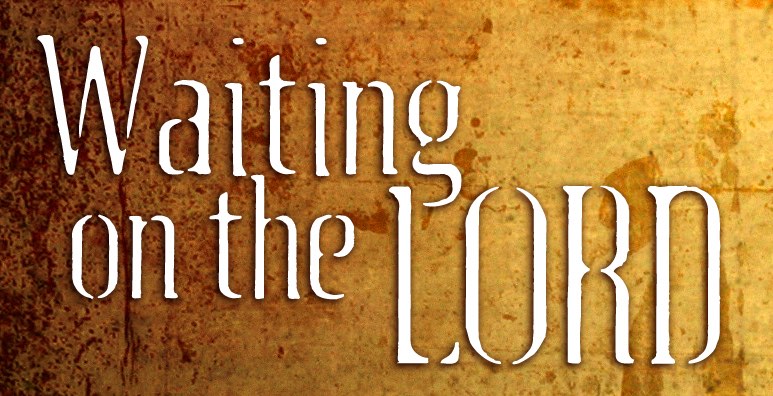The Catholic Church has been plagued by sexual abuse throughout the past few years and now the pope and the leadership of the church are dealing with these sins of the leadership to determine a clear path forward. This very week as I write this article, Pope Francis is hosting Catholic bishops from around the world in Vatican City to deal with this widespread abuse of catholic priests and bishops in the churches where they serve. Church leadership has failed the people and the people are demanding justice.
The sexual abuse cases surrounding the Catholic Church remind us that the church is made up of leaders who are just people. Leaders are supposed to teach God’s Word and be an example to the people of who God is but they are not perfect and they often fail to accurately fulfill this role. This is a good reminder that our faith is in God and not in church leadership. This week’s Torah Portion accurately illustrates how we are to properly balance our respect for spiritual leadership while keeping our focus on God and holding spiritual leaders accountable.
Making a Covenant with God
Shortly after the Exodus from Egypt, the LORD made a covenant with the people of Israel and Israel agreed to keep this covenant. Moses was the intermediary of this covenant and he read to them the terms as designated by the LORD. The people agreed to all that the LORD required of them and promised to keep the covenant. Moses then sealed the covenant with a sacrifice and sprinkled some of the blood on the people as a reminder of the covenant (Ex. 24:3-8).
It was after the establishing of this covenant that the LORD called Moses to come up to the mountain where He would give him the two stone tablets. It was only Moses and Joshua who went up the mountain while Aaron and the elders of Israel remained with the people:
Now the LORD said to Moses, “Come up to Me on the mountain and remain there, and I will give you the stone tablets with the law and the commandment which I have written for their instruction.” So Moses arose with Joshua his servant, and Moses went up to the mountain of God. But to the elders he said, “Wait here for us until we return to you. And behold, Aaron and Hur are with you; whoever has a legal matter, let him approach them.” Then Moses went up to the mountain, and the cloud covered the mountain. – Ex. 24:12-15
Moses had specifically told the seventy elders of Israel to remain there along with Aaron and Hur and that if the people had issues that needed to be decided upon they were to go to Aaron and Hur. Moses ascended the mountain in peace knowing that responsible leaders were over the people.
Moses stayed on Mount Sinai with the LORD for forty days and forty nights (Ex. 24:18). Beyond receiving the two stone tablets, we know that Moses also received specific details regarding the Tabernacle and the ceremonial vessels which are recorded in Exodus chapters twenty-five through thirty-one. When the LORD finished speaking with Moses, He gave him the two tablets written by God’s own finger and sent Moses down the mountain (Ex. 31:18).
Worship of the Golden Calf
Unfortunately, the story didn’t conclude with a happy ending. While Moses was still on the mountain talking with the LORD, the people became restless:
Now when the people saw that Moses delayed to come down from the mountain, the people assembled about Aaron and said to him, “Come, make us a god who will go before us; as for this Moses, the man who brought us up from the land of Egypt, we do not know what has become of him.” – Ex. 32:1
As we know from the rest of the story, Aaron obeyed the voice of the people and made a golden calf which the people worshipped in place of the LORD.
How quickly the people went from making a covenant of devotion to the LORD to then breaking that very covenant within a mere forty-day span. It is easy for us to look at the sin of the people of Israel with the golden calf and to point our finger at them in shame, however, I believe that we need to be slow to judgement as we remember how easy it can be for any of us to fall into sin. We need to learn from the mistakes of the Israelites and be reminded to walk faithfully with our God: “Now these things happened to them as an example, and they were written for our instruction, upon whom the ends of the ages have come.” (1 Cor. 10:11) Therefore, let us learn the spiritual lessons from this powerful account when God made a covenant with the nation of Israel.
Lesson #1 – Respect Godly Leadership
The first insight we learn from this account of the sin of the Israelites with the golden calf is in relation to the people’s impatience with Moses’ descent from the mountain: “Now when the people saw that Moses delayed to come down from the mountain, the people assembled about Aaron…” (Ex. 32:1a) Moses had been on the mountain with the LORD for several weeks and, according to the majority of the people, it had been more than enough time. In their minds Moses should have descended already but since he had not, the people went to Aaron and demanded a new leader and a new god.
The word for “delayed” in the above verse is the Hebrew word בושש – boshesh from the Hebrew root word בוש – bosh which can mean of “shame” or “delay.” Read in context it seems most appropriate to mean “delay” as it is used in a similar manner in Judges 5:28. The delay of Moses to descend and return to the people was understood as a forfeiture of his right as their leader. The people had determined that his delay and their waiting had reached the point of shame and embarrassment. They were determined to go forward with a new leader and a new god who would work according to their time table.
Wait on the LORD
The spiritual life demands a constant waiting on God; waiting for Him to act in accordance with His Word and His promises. As the people of God, we need to know the LORD, know His Word, live in harmony with His Spirit, and learn how to wait on the LORD and His perfect timing to bring everything to completion. “Wait for the LORD; Be strong and let your heart take courage; Yes, wait for the LORD.” (Ps. 27:14) Waiting on the LORD can be very challenging as we finite beings try to relate with the infinite God of the universe expecting Him to move and act within a certain time frame. It becomes even more of a challenge when we interact with the people whom God has appointed over us in leadership.

Be Patient with Leaders
We need to exercise both respect and patience for those whom God has placed over us in spiritual authority within our believing communities:
But we request of you, brethren, that you appreciate those who diligently labor among you, and have charge over you in the Lord and give you instruction, and that you esteem them very highly in love because of their work. Live in peace with one another. We urge you, brethren, admonish the unruly, encourage the fainthearted, help the weak, be patient with everyone. – 1 Thess. 5:12-14
It is easy to become impatient with leaders in the congregation regarding their decisions and the time frame in which they act, however, we need to learn to be respectful and patient with those who serve as leaders. We need to be careful to not force our demands and time frames on spiritual leaders but be patient and respectful.
Lesson #2 – Follow God, Not People
The second major lesson we can learn from the sin of the Israelites with the golden calf is how they cut off their relationship with the LORD based on their human decision to cut off Moses from being their leader. When the Israelites went to Aaron, they demanded from him the following:
Come, make us a god who will go before us; as for this Moses, the man who brought us up from the land of Egypt, we do not know what has become of him. – Ex. 32:1b
The people had confused following Moses as their leader and prophet with knowing and following the LORD, the Creator of the universe.
Even if the people had given up on Moses for not returning to them in a time frame which they thought was sufficient, this was no reason to abandon their faith in the living God. By asking for “…a god who will go before us;…” the people had broken their covenant with the LORD and had established a new religion and a new faith. Sadly, Aaron listened to the people and made the golden calf for them.
Honor the Name of the LORD
When Moses descended the mountain and saw the spiritual waywardness of the people, he immediately spoke truth into the situation and called for those who had their eyes on the LORD:
Now when Moses saw that the people were out of control—for Aaron had let them get out of control to be a derision among their enemies— then Moses stood in the gate of the camp, and said, “Whoever is for the LORD, come to me!” And all the sons of Levi gathered together to him. – Ex. 32:25-26
Moses unequivocally called the people to stand up for the name of the LORD and only the sons of Levi came to Moses’ side. Moses was not fighting for his own honor but for the honor of the LORD.
Moses also clearly pointed out that since Aaron was one of the main leaders whom he had left in charge before ascending the mountain, Aaron was ultimately responsible for the spiritual chaos in the camp. It was not about taking sides between Aaron and Moses. It was about honoring the Name of the LORD and worshiping Him alone! We often associate ministries and churches with certain people, however, our focus must first and foremost be on the LORD. God can and will use certain people to lead and guide His people but it is He alone who is to be worshipped and followed. In our devotion to the LORD, we follow God, not people!
Lesson #3 – Confront Reckless Leadership
The phrase “out of control” is used twice in Exodus 32:25 and both times it is a form of the Hebrew word פרע – Parah which can mean “to lead” but it also means “to let loose, to let go, or to let go of restraint.” The people were acting out of control because Aaron had let go of the spiritual leadership which was entrusted to him and had led the nation into idolatry. This leads us to our next point of dealing with and confronting ungodly leadership.
Spiritual leaders are called to teach and train the people in God’s holy ways. Obviously spiritual leaders are human and will err along the way, however, there needs to be a certain level of spiritual maturity which leaders demonstrate in order to qualify and remain as leaders. Leaders also need to be held accountable for their actions. As much as it is the right thing to respect and be patient with spiritual leadership, as mentioned above, it is also incumbent upon the congregation of believers to hold leaders accountable in the office which they hold and to not allow spiritual leaders to lead the people away from the LORD.
An Example of Confronting Leadership: Elijah & Ahab
This week’s corresponding reading from the prophets is found in the book of 1 Kings chapter eighteen where it is recorded about the famous confrontation between Elijah and the prophets of Baal on Mt. Carmel. Although Elijah was confronting the prophets of Baal and Asherah, Elijah was actually confronting the King of Israel, Ahab, along with his wife, Jezebel:
When Ahab saw Elijah, Ahab said to him, “Is this you, you troubler of Israel?” He said, “I have not troubled Israel, but you and your father’s house have, because you have forsaken the commandments of the LORD and you have followed the Baals. Now then send and gather to me all Israel at Mount Carmel, together with 450 prophets of Baal and 400 prophets of the Asherah, who eat at Jezebel’s table.” So Ahab sent a message among all the sons of Israel and brought the prophets together at Mount Carmel. Elijah came near to all the people and said, “How long will you hesitate between two opinions? If the LORD is God, follow Him; but if Baal, follow him.” But the people did not answer him a word. – 1 Kings 18:17-21
The unfolding of the rest of this story is a powerful reminder that the LORD alone is God as the fire fell from heaven and consumed the water-soaked sacrifice that Elijah had prepared.

Elijah confronted the reckless manner in which Ahab and Jezebel had forsaken the Word of the LORD and had caused the people to follow Baal. Elijah brought this spiritual deception out into the open and challenged the people of Israel to choose whom them would serve. Elijah knew that he was putting his life on the line by challenging Ahab and Jezebel to a spiritual duel but he faced the spiritual corruption head on and exposed the deceptive spiritual leadership for what and who they were.
Confronting Corrupt Spiritual Leadership Today
There is not much written in the New Testament regarding confronting corrupt spiritual leadership, however, we are responsible to confront the obvious sin of any brother or sister in the community of believers:
If your brother sins, go and show him his fault in private; if he listens to you, you have won your brother. But if he does not listen to you, take one or two more with you, so that by the mouth of two or three witnesses every fact may be confirmed. If he refuses to listen to them, tell it to the church; and if he refuses to listen even to the church, let him be to you as a Gentile and a tax collector. Truly I say to you, whatever you bind on earth shall have been bound in heaven; and whatever you loose on earth shall have been loosed in heaven. – Matthew 18:15-18
We have a responsibility to confront the sin in our community, even more so if it is in the leadership of the community (James 3:1). For further study on the subject of “binding and loosening” I recommend my article on this topic: The Danger of Silence
Follow God, Not People!
The spiritual life of the believer in Yeshua as the Messiah is a delicate walk of faith with a focus on God the Father, the Son, and the Holy Spirit. Any deviation from the LORD Himself as the central focus and God’s Word as the foundation of His truth will surely lead to spiritual chaos as it did in the case of Aaron and the Israelites with the golden calf. With the LORD at the center of our spiritual focus and worship we will be able to see clearly to respect godly leadership and confront reckless leadership when necessary. We ultimately follow God, not people!
Shabbat Shalom!
If you enjoyed reading this article, share it today with friends! We also invite you to sign up for our weekly Torah Portion commentary on the sidebar to the right.
Help keep our weekly commentaries free and available to all. Click here to donate today:

Torah Portion: Ex. 30:11 – Ex. 34:35
Haftara: 1 Kings 18:1-39
Return to Torah Portion Homepage
Copyright Jewels of Judaism. All rights reserved 2019


I thank the LORD for the recovery of Sandy. May God bless her!
Thank you Daniel for a enlightening text on why we need to follow the words of God, and keep them sacred. That’s why the spiritual leaders have a responsibilty to follow them too. If they don’t, God will intervene, I beleive. Shabbat Shalom, Jerusalem!🙏